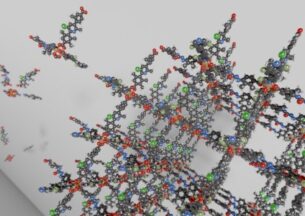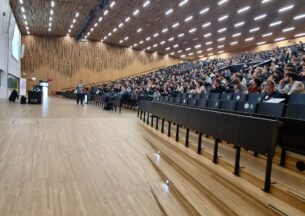Ian Foster and Rick Stevens Named to HPCwire’s 35 Legends List
In a significant recognition of their contributions to the field of high-performance computing (HPC), Arthur Holly Comton Distinguished Service Professor Ian Foster and Professor Rick Stevens from the University of Chicago’s Department of Computer Science have been named to HPCwire’s prestigious 35 Legends list. This honor, bestowed in celebration of HPCwire’s 35th anniversary, highlights individuals who have shaped the evolution of HPC over the past three and a half decades.
Ian Foster: The Father of Grid Computing
 Dr. Ian Foster, often referred to as the “father of the grid,” has left an indelible mark on the world of distributed computing. Foster, along with collaborators Carl Kesselman and Steve Tuecke, pioneered “grid computing” and envisioned a world where computing resources could be delivered on demand as a service. This vision has been instrumental in laying the groundwork for today’s ubiquitous cloud computing technologies.
Dr. Ian Foster, often referred to as the “father of the grid,” has left an indelible mark on the world of distributed computing. Foster, along with collaborators Carl Kesselman and Steve Tuecke, pioneered “grid computing” and envisioned a world where computing resources could be delivered on demand as a service. This vision has been instrumental in laying the groundwork for today’s ubiquitous cloud computing technologies.
As the Director of the Data Science and Learning Division at the U.S. Department of Energy’ (DOE) Argonne National Laboratory, Foster continues to push the boundaries of what’s possible in HPC, distributed systems, and applied AI. His team is currently focused on autonomous discovery, including projects like AuroraGPT, which leverages the Aurora supercomputer to build and train large language models for scientific applications.
In his academic role at UChicago, Foster co-leads Globus Labs with Research Associate Professor Kyle Chard. Globus is a pioneering effort in research cyberinfrastructure, and boasts over 500,000 registered users across more than 100 countries, epitomizes Foster’s commitment to creating a global data and computing fabric. His work has enabled data-intensive, multi-institution collaborations that are vital to scientific discovery today.
Foster’s influence extends far beyond his technical achievements. His philosophy of embodying a “beginner’s mind” and embracing collaboration has been key to his success, fostering an environment where innovation thrives. “As long as one is willing to engage enthusiastically, ask questions, and look stupid sometimes, success often seems to follow,” Foster remarked, reflecting on his approach to problem-solving.
Rick Stevens: Pioneering AI Supercomputing
 Rick L. Stevens, another luminary on HPCwire’s 35 Legends list, has been a driving force in the development of HPC as a transformative tool for science and engineering. As the Associate Director for Computing, Environment, and Life Sciences at Argonne National Laboratory, Stevens has been at the forefront of launching Aurora, the world’s fastest AI supercomputer.
Rick L. Stevens, another luminary on HPCwire’s 35 Legends list, has been a driving force in the development of HPC as a transformative tool for science and engineering. As the Associate Director for Computing, Environment, and Life Sciences at Argonne National Laboratory, Stevens has been at the forefront of launching Aurora, the world’s fastest AI supercomputer.
Aurora represents a monumental leap in computational power, achieving the highest score in a TOP500 benchmark test and breaking the exascale barrier. Designed to handle both traditional scientific computing challenges and AI-powered research, Aurora is equipped with 63,744 GPUs, making it the largest GPU-powered supercomputer in existence. This groundbreaking system is set to accelerate discoveries across a range of disciplines, providing researchers with unprecedented tools to solve complex problems.
Stevens’ contributions to the HPC community are vast, spanning a leading role in the creation of the DOE’s Exascale Computing Project and the development of world-class computing resources like the Argonne Leadership Computing Facility. His dedication to advancing the field is evident not only in his technical achievements but also in his role as a mentor and community leader. Stevens has organized conferences, workshops, and initiatives like the Trillion Parameter Consortium, which brings together global research teams to tackle key challenges in AI.
Reflecting on his career, Stevens said, “I view my role as an agitator for the community to find ways to move things forward, aim the community higher, and move everyone faster towards our dreams.” His passion for pushing the boundaries of knowledge and understanding continues to inspire and shape the future of HPC.
A Legacy of Innovation and Leadership
The inclusion of Ian Foster and Rick Stevens in HPCwire’s 35 Legends list is a testament to their pioneering work and lasting impact on the field of high-performance computing. Their contributions have not only advanced technology but have also fostered a culture of collaboration and innovation that continues to drive scientific discovery.
As members of the University of Chicago and Argonne National Laboratory, Foster and Stevens exemplify the spirit of inquiry and excellence that defines our community. Their recognition as HPC Legends underscores the vital role that UChicago researchers play in shaping the future of computing.














